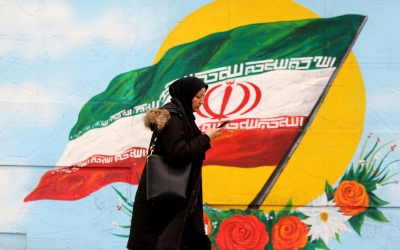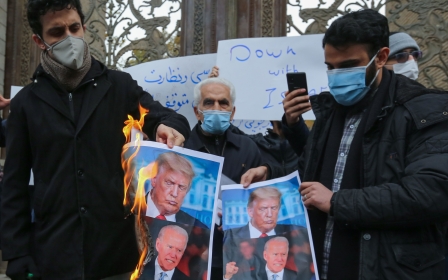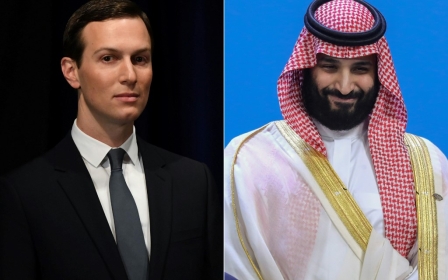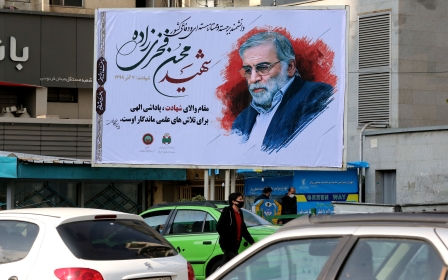New negotiations needed to return US to Iran nuclear deal, says UN watchdog
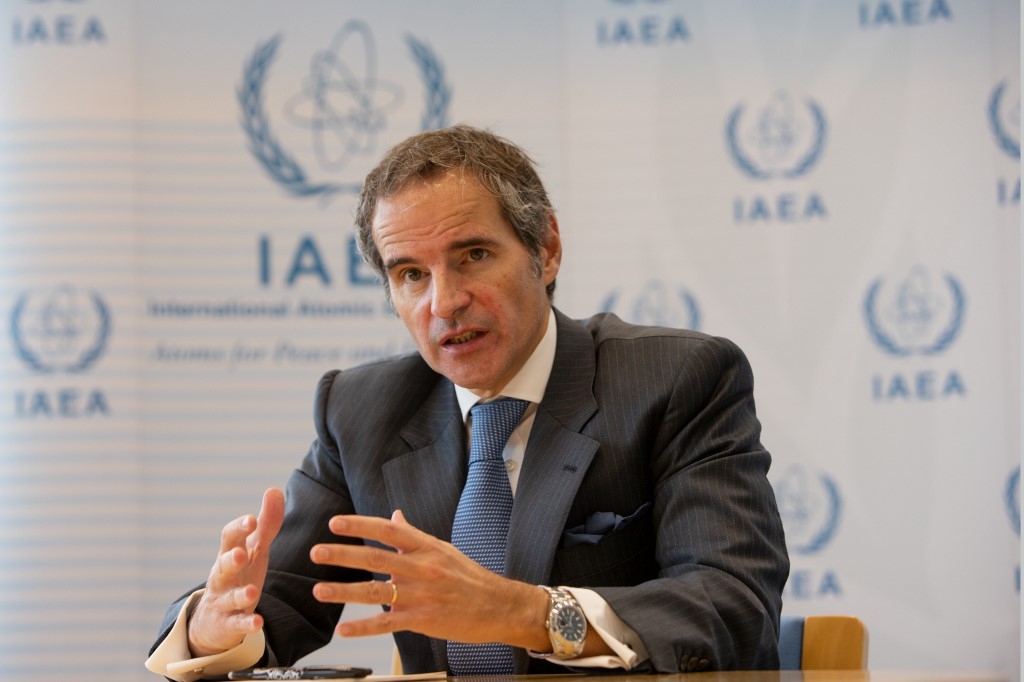
The head of the UN agency in charge of policing the Iran nuclear deal said a new agreement would need to be struck among signatories before President-elect Joe Biden could bring the United States back into the deal.
Rafael Grossi, who heads the International Atomic Energy Agency (IAEA), said in an interview with Reuters that Iran had breached too many of the original deal's limitations following US President Donald Trump's 2018 withdrawal for it to be salvaged.
'I cannot imagine that they are going simply to say: "We are back to square one" because square one is no longer there'
- Rafael Grossi, head of IAEA
Instead, Grossi said, reviving Iran's nuclear deal under Biden would require striking a new agreement setting out how Iran's breaches should be reversed.
"I cannot imagine that they are going simply to say, 'We are back to square one' because square one is no longer there," Grossi said at IAEA headquarters.
"There is more [nuclear] material... there is more activity, there are more centrifuges, and more are being announced. So what happens with all this? This is the question for them at the political level to decide," said Grossi, an Argentine who took office as IAEA director-general a year ago.
Biden and Rouhani welcome negotiations
Both Biden and Iranian President Hassan Rouhani have expressed a willingness to mend relations that have deteriorated under the Trump administration's "maximum pressure" campaign.
Still, Grossi said a new agreement would require a "deal within a deal", Reuters reported.
"It is clear that there will have to be a protocol or an agreement or an understanding or some ancillary document which will stipulate clearly what we do," he said.
During a televised cabinet speech on 9 December, Rouhani suggested that re-entering the nuclear deal would be simple.
When Trump withdrew from the multilateral nuclear deal, known as the JCPOA, in May 2018, he just "scribbled on a piece of paper", Rouhani said during the speech.
"The next person can put up a nice piece of paper and sign it and it just needs a signature, we'll be back where we were. It takes no time and needs no negotiations."
Meanwhile, Biden, who takes office on 20 January, has said the United States would rejoin the deal "if Iran resumes strict compliance" with the agreement's imposition of rigid curbs on its nuclear activities in return for its lifting of sanctions.
Asked whether he stands by his previous call for a mutual return to the pact, in an interview with the New York Times earlier this month, Biden said: "It's going to be hard, but yeah."
"In consultation with our allies and partners, we're going to engage in negotiations and follow-on agreements to tighten and lengthen Iran's nuclear constraints, as well as address the missile programme," he said.
Non-compliance and new sanctions
After Tehran tried and failed for a year to get European powers to convince the Trump administration to ease up on its Iranian pressure campaign, Iran began to downgrade some of its commitments and moved out of compliance with the deal.
Since Washington's JCPOA withdrawal, hostility has been on the rise between the two countries and their regional allies. Early in 2020, Washington and Tehran came to the verge of war after a US air strike in Baghdad killed top Iranian general Qassem Soleimani.
Tensions have continued to be strained, particularly after the recent assassination of Iranian nuclear scientist Mohsen Fakhrizadeh. Iran has blamed the US and Israel for coordinating the assassination.
Although Israel has not commented on Fakhrizadeh's killing, a senior official in the Trump administration told US media that Mossad, Israel's external intelligence agency, was behind the operation. The US has denied involvement.
Late last month, Special Envoy for Iran Elliott Abrams said Tehran should expect new US sanctions related to arms, weapons of mass destruction and human rights to be piled on throughout December and January as the Trump administration prepares to depart the White House.
New US sanctions against Iran have been issued with increasing frequency in recent weeks. In a move seemingly intended to make matters more complicated for the Biden administration and its plans to return to the nuclear deal, a significant portion of the new sanctions have focused on non-nuclear related industries, including counterterrorism designations.
"It's not a legal bind on the Biden administration, but a political bind where they feel that it would be harder for the new administration to make the case that sanctions on counterterrorism targets should be lifted just to get back into the nuclear deal," Ryan Costello, policy director at the National Iranian American Council (NIAC), told MEE late last month.
Middle East Eye propose une couverture et une analyse indépendantes et incomparables du Moyen-Orient, de l’Afrique du Nord et d’autres régions du monde. Pour en savoir plus sur la reprise de ce contenu et les frais qui s’appliquent, veuillez remplir ce formulaire [en anglais]. Pour en savoir plus sur MEE, cliquez ici [en anglais].



